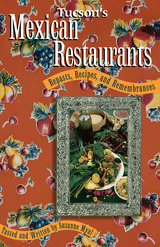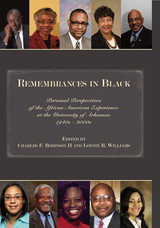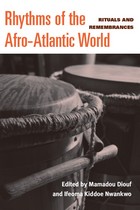
From the traditional restaurants of South Tucson to newer dining spots on the north and east sides, Tucson's Mexican Restaurants is an affectionate look at some of the best places to savor this wonderful cuisine. Suzanne Myal takes readers into the kitchens of many of these establishments to offer insights into the families that run them, the secrets of food preparation, and even the history of some of Tucson's best-loved recipes. Many of those recipes, along with others from prominent Mexican American families, are reproduced in the book, inviting readers to try their hand at red beef tamales, chiles rellenos, and other favorite dishes.
The book is organized by six sections of town, with a locator map for each. The entry for each establishment includes address, hours, price range, and credit card information, and indicates the specialties of the house. Each entry is also coded for features such as level of alcohol service; availability of carryout, delivery, and catering; and whether the menu features heart-healthy or vegetarian options. A separate section lists Mexican bakeries and tortilla factories, and a guide to fiestas helps readers choose beer or tequila—and find menudo when they've overindulged.
From street trucks to historic sites, Mexican restaurants in Tucson offer something for every palate. This book can help visitors and residents alike find their way around them and better enjoy some of the best Mexican food north of the border.

A rare and remarkable example of Indo-Persian autobiography by the poet Mir Taqi Mir.
Mir Muhammad Taqi Mir (1723–1810) is the author of six collections of Urdu poetry and widely regarded as the finest ghazal poet in that language. However, he also wrote one volume of verse and three prose works in Persian, including Zikr-e Mir, or Remembrances, a rare and remarkable example of Indo-Persian autobiography.
Remembrances recounts Mir’s ancestry, his father’s spiritual quest, and his own struggles to find education and patronage both in his native Agra and in Delhi. While the work may offer few glimpses into the author’s private life or professional literary activity, it presents a vivid picture of political events and intrigues between 1760 and 1789, when north India witnessed extensive warfare.
The Persian text, presented here in the Naskh script, includes all the author’s additions and alterations properly identified and chronologically arranged, along with a newly revised English translation. Mir concludes his autobiography with a series of jokes and witty anecdotes, some of them quite risqué, that are printed here for the first time.


Stephen Owen's book, inspired by Chinese literature, is for all who value literature in any language. Remembrances takes up the strongest claims we can make for literature: that it can sustain life in the present and the life of the past. The past has always played a particularly powerful role in Chinese civilization. Both private memories and cultural artifacts were an inescapable part of the present, offering models for present behavior and recalling what had been lost.
Owen shows how the fascination with the past came into being in Chinese literature, some of the forms it took, and the ways readers have responded to such literature. He reflects on a series of moments in Chinese writing from the seventh century B.C. to the early nineteenth century. Through poems, anecdotes, exegeses, and one long story of an ardent collector and his wife, Owen treats a theme basic to Chinese civilization not as something exotic but as a motif fundamental to our civilization, even though its expression differs from our own.

"Collecting essays by fourteen expert contributors into a trans-oceanic celebration and critique, Mamadou Diouf and Ifeoma Kiddoe Nwankwo show how music, dance, and popular culture turn ways of remembering Africa into African ways of remembering. With a mix of Nuyorican, Cuban, Haitian, Kenyan, Senegalese, Trinidagonian, and Brazilian beats, Rhythms of the Afro-Atlantic World proves that the pleasures of poly-rhythm belong to the realm of the discursive as well as the sonic and the kinesthetic."
---Joseph Roach, Sterling Professor of Theater, Yale University
"As necessary as it is brilliant, Rhythms of the Afro-Atlantic World dances across, beyond, and within the Black Atlantic Diaspora with the aplomb and skill befitting its editors and contributors."
---Mark Anthony Neal, author of Soul Babies: Black Popular Culture and the Post-Soul Aesthetic
Along with linked modes of religiosity, music and dance have long occupied a central position in the ways in which Atlantic peoples have enacted, made sense of, and responded to their encounters with each other. This unique collection of essays connects nations from across the Atlantic---Senegal, Kenya, Trinidad, Cuba, Brazil, and the United States, among others---highlighting contemporary popular, folkloric, and religious music and dance. By tracking the continuous reframing, revision, and erasure of aural, oral, and corporeal traces, the contributors to Rhythms of the Afro-Atlantic World collectively argue that music and dance are the living evidence of a constant (re)composition and (re)mixing of local sounds and gestures.
Rhythms of the Afro-Atlantic World distinguishes itself as a collection focusing on the circulation of cultural forms across the Atlantic world, tracing the paths trod by a range of music and dance forms within, across, or beyond the variety of locales that constitute the Atlantic world. The editors and contributors do so, however, without assuming that these paths have been either always in line with national, regional, or continental boundaries or always transnational, transgressive, and perfectly hybrid/syncretic. This collection seeks to reorient the discourse on cultural forms moving in the Atlantic world by being attentive to the specifics of the forms---their specific geneses, the specific uses to which they are put by their creators and consumers, and the specific ways in which they travel or churn in place.
Mamadou Diouf is Leitner Family Professor of African Studies, Director of the Institute of African Studies, and Professor of History at Columbia University.
Ifeoma Kiddoe Nwankwo is Associate Professor of English at Vanderbilt University.
Jacket photograph by Elias Irizarry
READERS
Browse our collection.
PUBLISHERS
See BiblioVault's publisher services.
STUDENT SERVICES
Files for college accessibility offices.
UChicago Accessibility Resources
home | accessibility | search | about | contact us
BiblioVault ® 2001 - 2024
The University of Chicago Press









